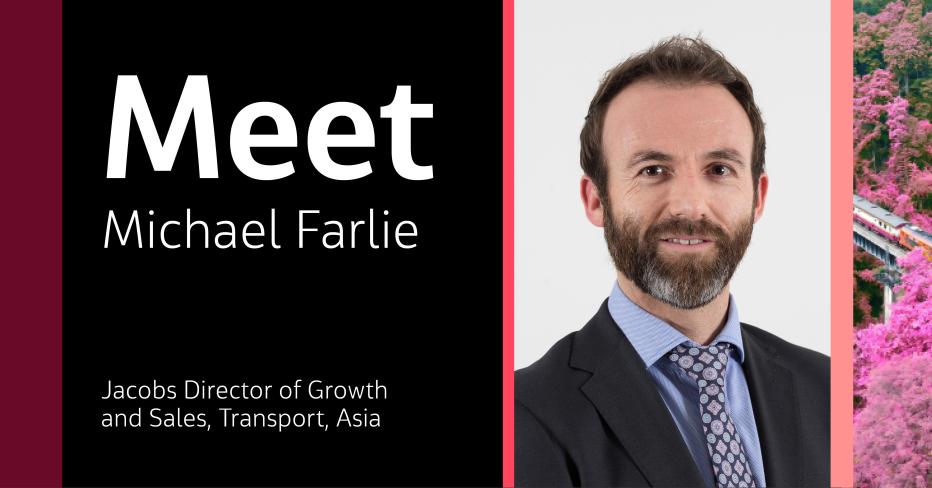
How can transport infrastructure, including rail, deliver transformative social, economic and environmental outcomes for the region?
We sat down with Michael Farlie, our director of growth and sales for transport in Asia to explore this and more.
Let’s get started:
Hello Michael! Can you tell us how the work you do is helping deliver Jacobs’ strategy?
Our company recognized an opportunity to accelerate our growth in key markets by focusing on aligning our solutions with climate response, data solutions and high value consulting and advisory. Through our global practice we are able to generate insights and develop innovative solutions from all over the world, across key markets, which we bring to our client portfolio every day.
I’m privileged to be able to draw in expertise from some of the world’s most complex infrastructure projects and provide market-leading solutions to our transport clients in Asia.
Tell us about your career journey at Jacobs and what excites you about your role.
As a graduate engineer I was fortunate to be involved with Jacobs initially from a client’s perspective on one of the largest water infrastructure projects in Australia, during a time when drought threatened to impact the water supply to much of the country.
From there, I moved into consulting, which gave me an opportunity to experience various industries in Australia, the U.K., the Middle East and most recently, here in Asia. This experience spans from engineering design to management consulting in transformation programs, through to operations leadership in rapidly growing teams and now business development.
As director of growth & sales for transport, I’m continuously impressed by the impact of investment in key infrastructure projects across Asia. Some of the most dramatic changes to our cities can be driven by improving mobility technology and infrastructure. Supporting our clients to overcome the challenges they face in delivering these changes and maximizing the benefits to stakeholders and communities remains a passion of mine that I get to live through my role with Jacobs.
What are some of the biggest challenges facing the transport sector in Asia today?
A primary challenge we’re seeing in the transport sector is the duration it takes to conceive, deliver and then put into operation key infrastructure projects. Some projects have taken up to five years in the feasibility phase alone, which makes it difficult to avoid disruption from political and economic cycles, not to mention the reset we’ve experienced from the global COVID-19 pandemic.
As such, we understand the importance of planning and delivering client solutions with agility, working in partnership with our clients to adapt and pivot quickly in response to changing circumstances, shifting market demands, emerging technologies or unforeseen challenges. Leveraging the collective skills, knowledge and experience of our global platform, we have the ability to bring together a diverse team of technical specialists, domain experts and advisors to implement agile, end-to-end and connected solutions for our clients that address the needs of our clients now, and long into the future.
Let’s shift the focus to rail – what excites you about the future of this sector in Asia?
As an enabler of economic and social development through urban transport, I cannot think of a better solution to drive transformation in the region than rail. It is the most compelling investment for city leaders, when we factor in sustainability, safety, productivity and the opportunity to uplift communities through social value creation.
With around 60% of the world’s population living in the region, the opportunity to positively impact the lives of people through rail infrastructure is greatest here, and our industry is motivated to achieve this. Supporting the collaboration of public and private sectors to realize this objective and to place transport at the heart of city transformation is exciting.
Can you share any recent technology advancements that are shaping the industry?
Perhaps not to focus on a single technology but on how different technologies are converging to achieve better outcomes, I’m excited to see the realization of big data incorporated into decision making, planning and project execution. For instance, the outcomes enabled by StreetLight Data, Inc. which taps into the power of Internet of Things (IoT) data are helping city planners to not only make decisions around key infrastructure investments, but also validate and test those decisions in real time.
As a user of multiple modes of transport, the one thing I want most is a seamless and integrated journey, door to door. The convergence of multiple technologies along with its application through subject matter experts is helping to achieve that.
What role do you see rail transportation playing in addressing climate change and reducing carbon emissions?
For a long time, railway transportation has been a solution to combat the risk of climate change by reducing carbon emissions. As we adopt renewable energy solutions more broadly, the benefits are even greater. In addition, from an urbanization perspective, the expansion of rail networks is critical to easing congestion by enabling a transition to public mass transit. So, we’re working closely with asset owners and agencies not only to deliver the rail infrastructure but also to adopt city-shaping policies that enable customer journeys.
What are some of the interesting transport projects you’re working on right now?
Outside of the major rail expansion programs in Kuala Lumpur and Singapore, I’m fortunate to be part of our advisory solutions, where we combine experience from the execution phase with capital advisory expertise to help investors and developers pursue major opportunities in high speed rail, airports and transit oriented development. The trend toward securing private sector investment has the potential to unlock major intercity and intercountry transport links that reshape the way we travel in the region. It’s a very exciting time as collaboration increases across the sectors.
If you could take a scenic rail journey anywhere in the world, where would you go?
We have just spent a week in Tokyo with our nine-month-old daughter. Seeing her eyes light up with every new experience she had in Japan, I would say taking a train from Tokyo to Hokkaido during winter is now very high on our list of rail journeys.
Outside work, you enjoy…
Cycling and showing the world to our daughter. I’m hoping to combine those two activities very soon as we both make the most of the improving cycle networks in major cities.
What do you enjoy most about being part of #OurJacobs?
Without question the best part of being in the Jacobs team is access to a truly global organization. We are able to engage and share knowledge from all around the world, and then bring those insights to our clients to deliver the biggest impact.
About the interviewee
As Director of Growth and Sales for Transport at Jacobs, Michael Farlie combines his knowledge and experience in consulting and advisory across Asia Pacific, the Middle East and the U.K. with Jacobs’ deep domain expertise to create unique solutions for our clients. He is passionate about helping clients drive positive, lasting impacts and create better social, environmental and economic outcomes through their infrastructure investments.
You might be interested in...
-
 News
NewsNavigating Mobility, Infrastructure Challenges for Transport in Asia: A Q&A with Wesley Wong
In this interview, we caught up with Jacobs’ Head of Sector for Transport and Infrastructure Asia Wesley Wong on the evolution of the transport sector, emerging trends and technologies that will continue to accelerate the industry's revolution and how we’re helping clients navigate mobility and infrastructure challenges in the region.
-
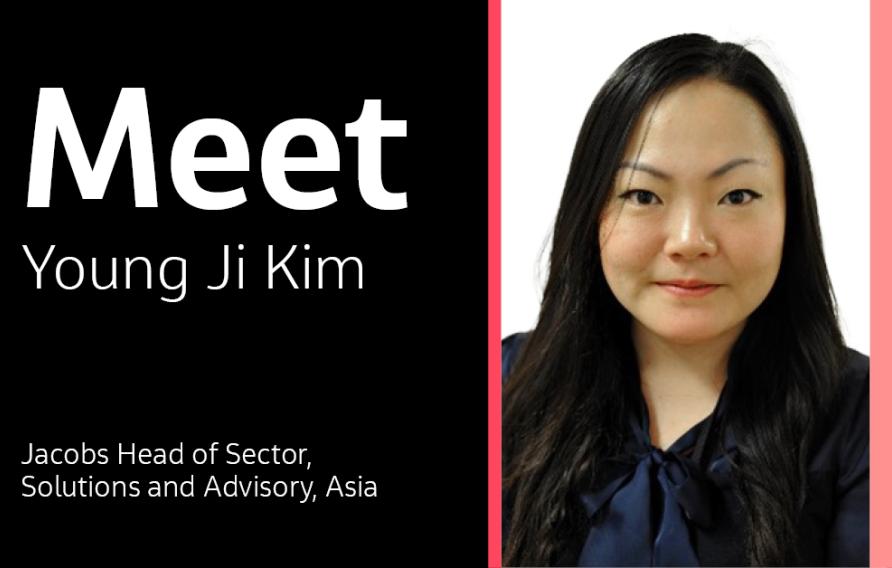 News
NewsUnlocking Value through Asset Management: Q&A with Young Ji Kim
In this interview, Head of Solutions and Advisory Asia at Jacobs Young Ji Kim emphasizes the challenges posed by aging critical infrastructure assets and the importance of adopting a holistic approach for sustainable infrastructure development in Asia.
-
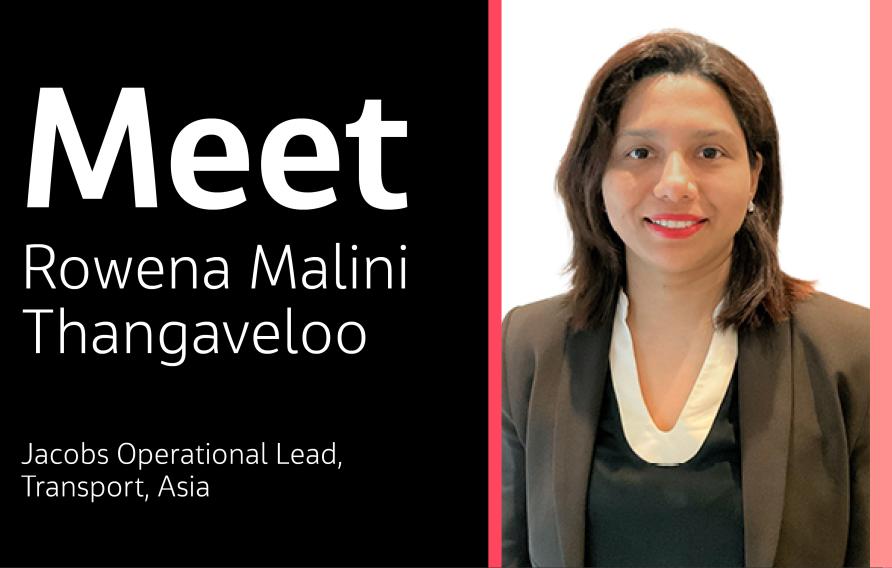 News
NewsRevolutionizing Transport: A Q&A with Rowena Malini Thangaveloo
We speak to Jacobs’ Operational Lead for Transport in Asia, Rowena Malini Thangaveloo, as she reflects on her journey at #OurJacobs and sheds light on some of the cutting-edge advancements that have the potential to reshape the future of the industry.
-
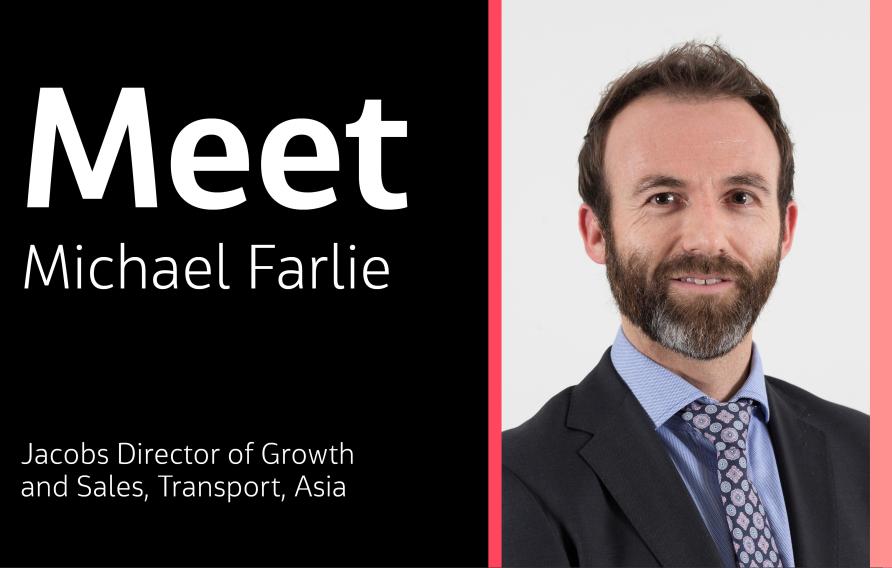 News
NewsShaping the Future of Transportation in Asia: A Q&A with Michael Farlie
Our director of growth and sales for transport, Asia, unpacks the role of resilient and inclusive transport infrastructure, including rail, in accelerating transformation in the region.
-
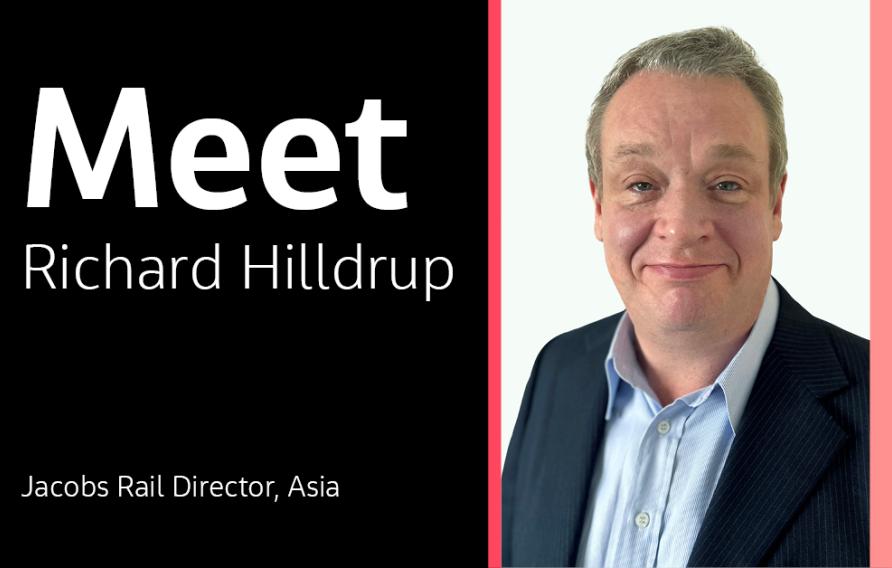 News
NewsExploring the Rail Industry’s Remarkable Transformation: A Q&A with Richard Hilldrup
We sat down with Jacobs’ Rail Director, Asia Richard Hilldrup, who takes us through his career journey at Jacobs and shares his thoughts on the remarkable transformation of the rail industry, some of the projects he is working on, and what excites him the most about the future of the ever-evolving sector.












































